Documenting Eintracht Frankfurt’s Cinderella run to their first German cup in 30 years, The Return of the Cup made a triumphant United States debut at last week’s Kicking + Screening Film Festival. We were on the scene at the festival’s second night, which also included the screenings of a pair of shorts, merch booths, and a discussion panel with Frankfurt board member Axel Hellmann.
The endless red lights of a New York City rush hour make for a symphony of aggressive horn-honking and caustic gesturing. Yet in the Scandinavian House on Park Avenue, the atmosphere is jubilant and cool, as the 11th annual Kicking + Screening Film Festival is in its second night. Walking past an array of Nordic food and down the staircase, local and international guests are hobnobbing around a foosball table. Apparel brand Eleven New York had their merchandise on display, offering a free pair of socks for whoever could juggle the ball 50 times in a row. A high top table lays out Topps trading cards of current Bundesliga stars. The lights dim and the theatre is ready for its three films on the night.
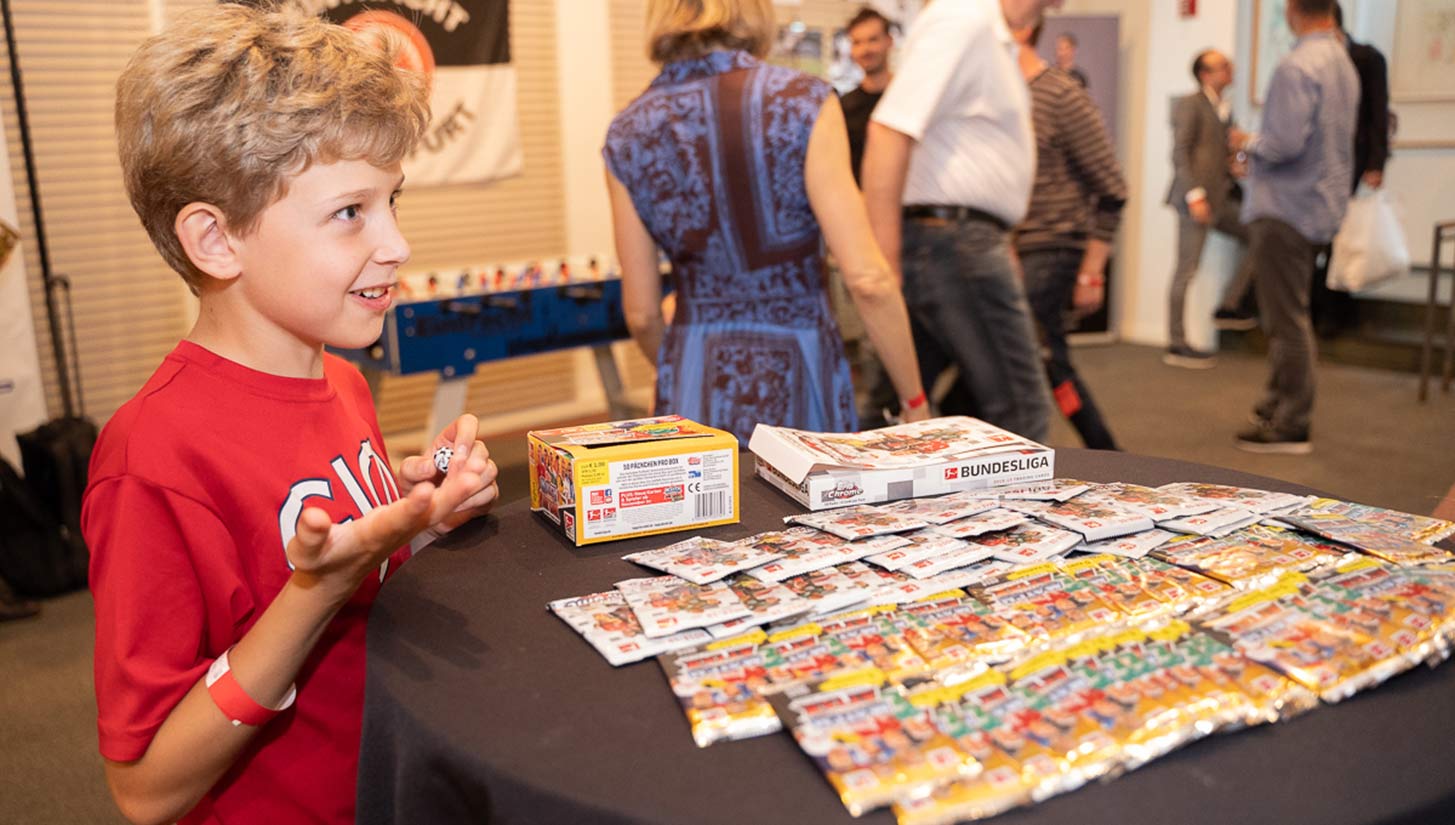
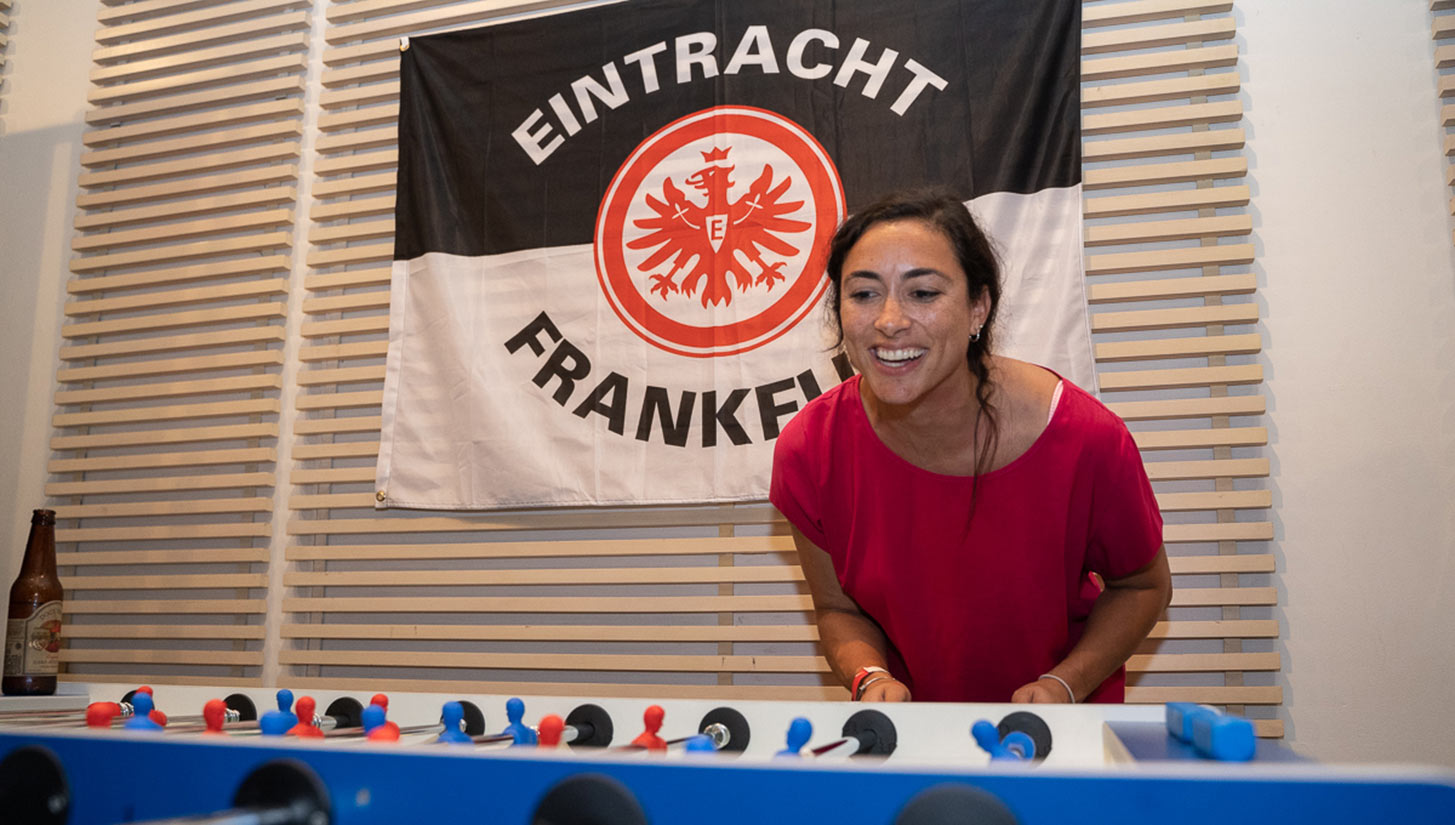
“The beautiful thing about football is that the stories write themselves,” Eintracht Frankfurt board member Axel Hellmann announces to the crowd as they get settled into their seats. Prior to the headline feature of the night, — The Return of the Cup, which follows Frankfurt’s unlikely run to a German Cup title — The Lunch Break is the first to be screened.
A comedic film centered on a friendship of several boys in grade school, they find themselves bored in geometry class, drawing formations in their notebook rather than calculating the four angles of a rectangle.
After being told that their usual football location — the gym — will be used for a meeting that day, the boys decide to disobey their teacher. To the comedic dubbing of a professional announcer, the boys have a 15-minute match, with one of their mates standing on a bucket to referee. After being caught by the school principal, they’re scolded in his office, before devising a plan to escape from their detention. The film ends as they run through the gates of their private Turkish school, putting a collective smile on the audience’s faces as a relatable short story.
The second film, Saudade, begins with two boys consoling each other in a rural field. Both in Real Madrid shirts, their father consoles one, explaining to him that he will always be able to visit him. It seems the adolescents will be separated. One remarks, “We have to show him we care.”
At the conclusion, they paint and hoist a banner over a footbridge: “Cristiano, don’t be sad.” It was a funny turn of events, as the entire film had been centered on Cristiano Ronaldo, unbeknownst to the viewer. It was an impactful, precise moment that did well in portraying the impact that star players have on the children who look up to and follow their every move.
Then, it was time for the event most people came for — the United States premiere of The Return of the Cup. In the introduction, Canadian/Dutch player Jonathan de Guzman highlights the club as one of 120 years of diversity, with unbelievable fans and an eagle on their chests that binds the entire region of Hesse. This foreword sheds light on the makeup of the club, alerting viewers that Frankfurt was special, and a unique story worth following.
A major plot line of the film follows Frankfurt manager Niko Kovac’s move to Bayern Munich, coincidentally in the same week that they would be competing against the Bavarians for the German Cup. The behind-the-scenes look sheds light on the dialogue that took place, as to whether or not the club directors were going to dismiss him before the cup battle due to a dismal league run.
Kovac was brought on to Frankfurt in the middle of the 2015-16 season, in which the club narrowly escaped relegation after defeating Nurnburg in a playoff match. The next two seasons, Frankfurt made significant Bundesliga improvements, finishing in 11th and eighth respectively, making two German Cup finals appearances along the way.
“We changed [to Kovac] and needed to turn from a struggling club and bring it somehow to the top ten of the Bundesliga,” Hellmann said in a panel discussion after the screening. “If you want to have the right attitude on the pitch, you first have to change the manager. The second step was to look for the right players on the market, and what came out in the film is that mentality and professional preparation is vital if you want to win something.”
The film further delved into the relationships on the team, and how they were able to cope with the added pressure surrounding them. Mijat Gacinovic and Ante Rebic joke with each other, but then admit that it’s a dynamic that lets them find their own harmony.
Kovac is shown in full concentration in the lead up to the final, with his tactics commanding the attention of his players, separating the defense and offense into individual sessions. He is deploying a tactic and formation used only sparingly by the Eagles, but one he believed that could be the antidote to Bayern’s poison.
Just one year ago, Frankfurt lost to Bayern in the same Cup Final. On film, Hellmann notes that out of this loss, which could have easily demoralized the players, emerged a spirit that made them want to come back stronger. This time, the final would be in Berlin — the same location where Frankfurt won their last title exactly 30 years ago.
The final became like a home match with the amount of support that the Eagles had brought. The terraces were filled with 25,000 fans in white, with choreography planned three days ahead. As the countdown reached zero, the fans turned from their backs towards the pitch in unison, unraveling a gigantic banner of Karl-Heinz “Charyl” Koerbel, who lifted the cup in 1988 and still works with the team. It was an overcoming emotion even in a theater seat.
The drama of surprise, heartbreak, and ultimate redemption in the German Cup final were brilliantly caught within the cinematography — the thrill of the first goal, Bayern drawing level, and finally the last-minute goal to solidify title success.
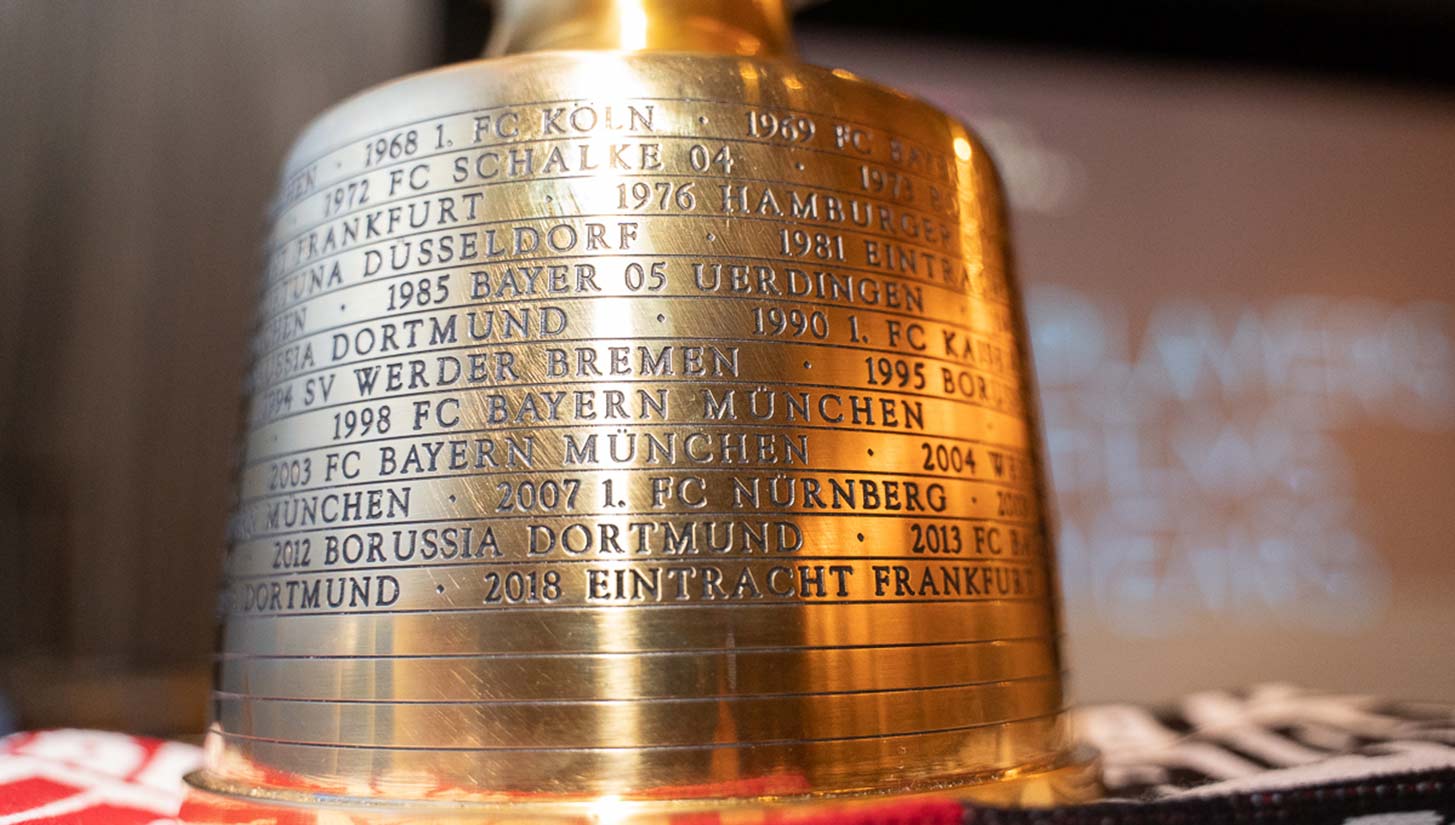
Along with the theme centered around Kovac, the audience saw the range of emotions that ran through him following the win. He, along with the team, were mentally and physically drained from their endeavor. As Kovac was set to leave for the club he just beat, and with the city of Frankfurt now considering him a hero, the capture of the changing expressions on his face added an element of heartache.
The footage went back to colorful club president Peter Fischer, who was recapping the excitement the following day in Frankfurt: “I know one thing for sure, I’ll never die from a heart attack — it would have happened then.”
Upon the film’s conclusion, Hellmann was present for a panel discussion alongside Kicking + Screening co-founder Greg Lalas, answering questions from media members in attendance as well as Lalas himself.
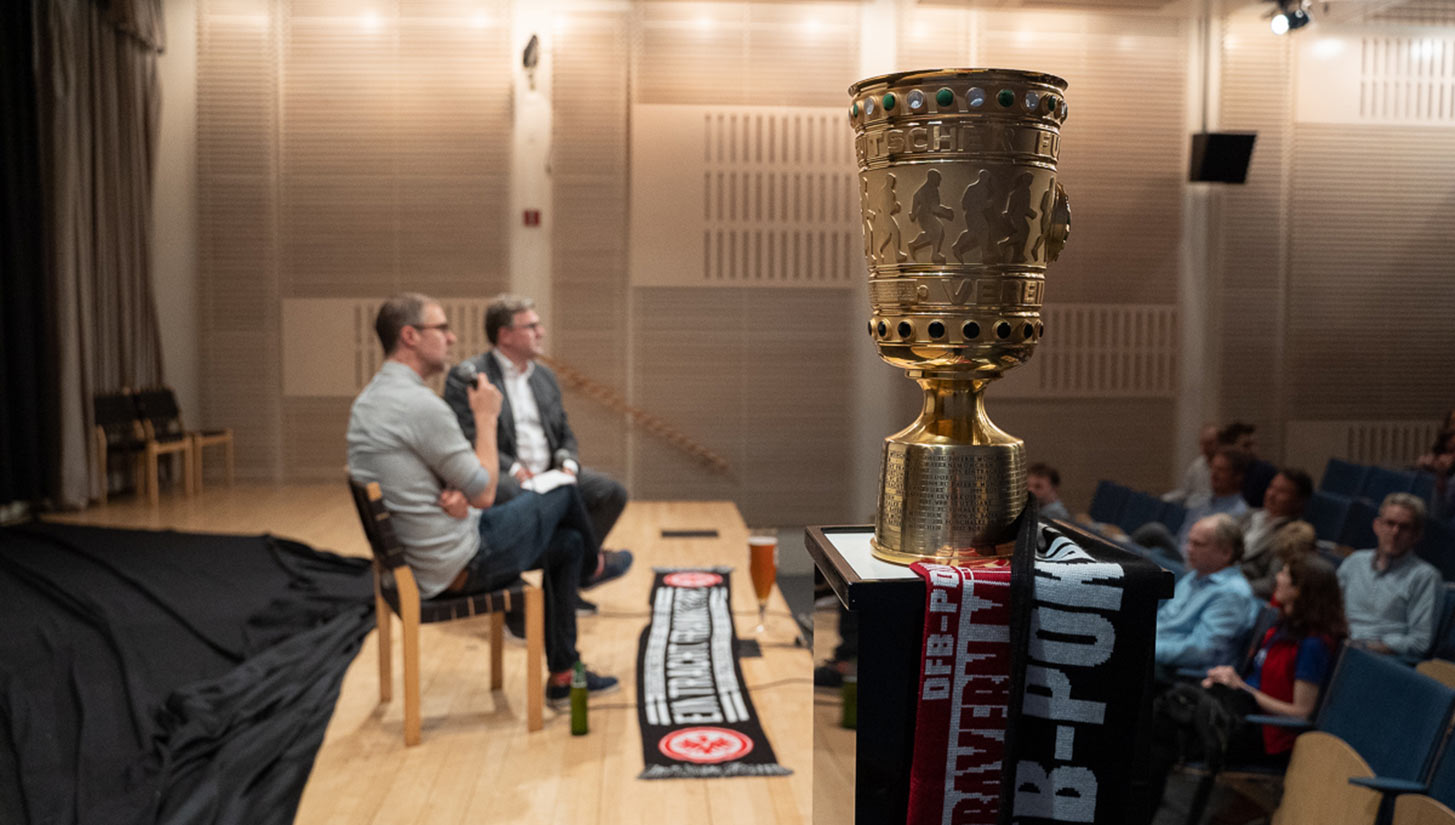
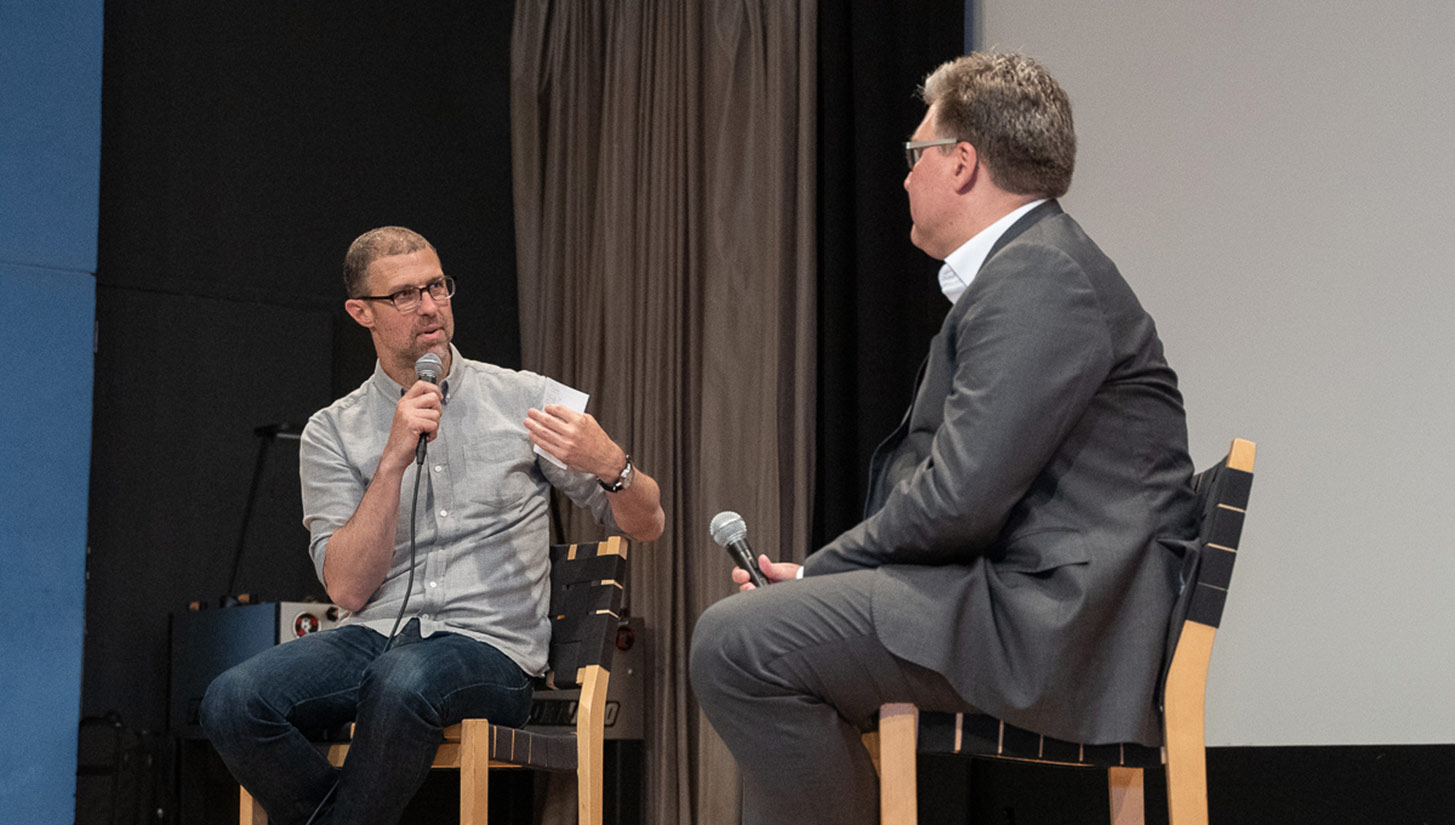
Now under a new manager, where do you take the club from here?
Hellmann: We waited 30 years for the title. People told me in the past it’s impossible to win anything again so you become kind of a passionate loser. This has completely changed, now there’s a belief of winning. So this was the starting point for a complete different appearance we have in Europe. Playing in qualifications for the Europa League doesn’t hurt — our fans will go to wherever these crazy tours will [take them]. Everything started with the cup winning. It was one of the best years of my life as a supporter and an official.
What was the relationship like between the camera crews and the team during the shooting of the film?
The allowing of filming is a question of trust. The coach and the players accept you as part of their team. Otherwise it’s a movie — fiction — but this is reality. None of this was prepared just for the camera, it happened.
Was it worth it that success in this year’s UEFA Europa League came at the expense of Bundesliga standings?
I like to achieve both. It was very close, we lost in a penalty shootout but in the end you’re right. We lost a lot of energy against Benfica but you can’t foresee it. We go with full energy towards every match. We are not Dortmund or Munich who can pick and choose top players. It was a tough situation with injuries towards the end. You can’t calculate or find a strategy, we have a fighting mentality of physical presence. That’s what we bring.
For sustained success, will Eintracht adopt the Ajax-style policy of growing players?
Well the Bundesliga is more competitive than the Dutch league so what that means is we have to react quicker. We have certain deals like that for Jovic who was purchased at €6.5 million, and sold for a starting value of €65 million. This is our philosophy that we need these deals to sell a player like him to reinvest in the team. I don’t see the Ajax team staying together, and then they’ll go into another five-year cycle of growth and success and the cycle will be repeated. But in Frankfurt we need consistent and immediate results as we don’t have the time that Ajax has.
Learn more about the Kicking + Screening Film Festival on their website.
Photography courtesy of the Kicking + Screening Film Festival.



















